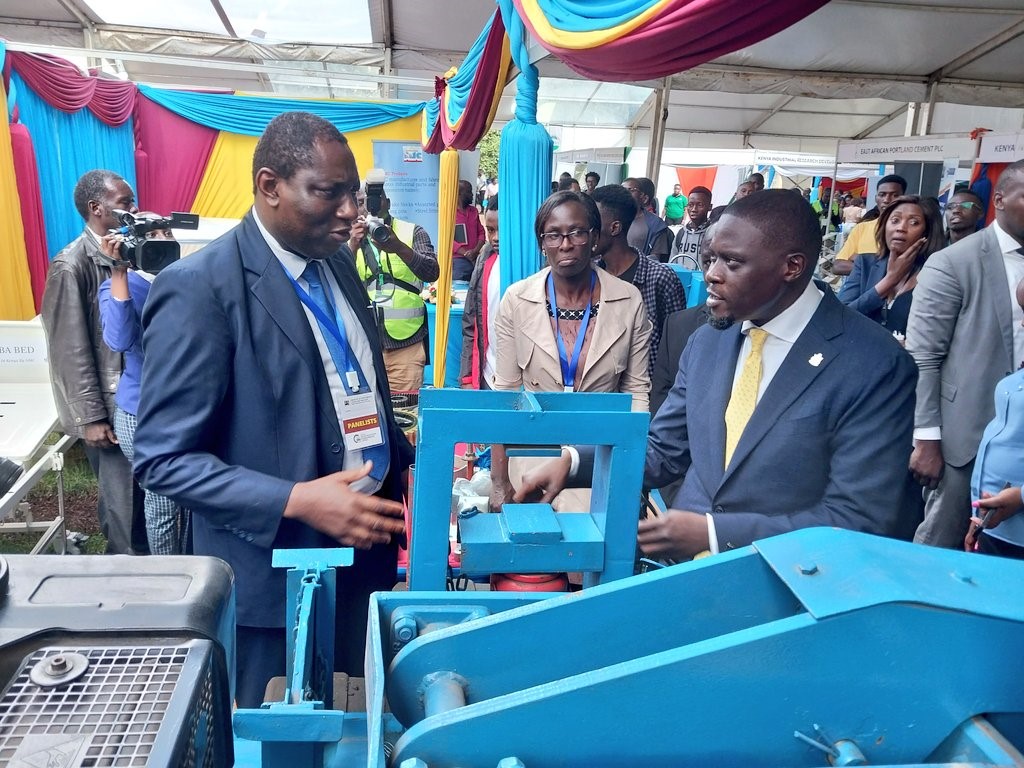

Tabitha Karanja, founder of Keroche Breweries, stands as one of Kenya’s most influential entrepreneurs, transforming the manufacturing and beverage industry. Her journey from a small business owner to the head of Kenya’s first locally owned brewery is a testament to resilience and vision. This article explores Tabitha Karanja’s path to success, the role of women entrepreneurs in Kenya’s economy, and how Keroche Breweries has reshaped the industry landscape.
1. Tabitha Karanja’s Path to Founding and Growing Keroche Breweries

The Early Days of Keroche
Tabitha Karanja launched Keroche Breweries in 1997 with a vision to break into Kenya’s beverage market, which was then dominated by multinational corporations. Starting with fortified wines, Keroche gradually expanded into the beer industry, a bold move that set the stage for Keroche to become a household name in Kenya.
Breaking Into the Beer Market
In 2008, Keroche Breweries introduced its flagship beer brand, Summit Lager, directly challenging industry giants. This strategic move was met with resistance, but Karanja’s determination helped her navigate regulatory challenges, supply chain issues, and market competition. By promoting locally brewed, high-quality products, Karanja appealed to Kenyans who valued locally-made options over foreign brands.
Innovations in the Brewing Process
Keroche invested in advanced brewing technology to maintain quality standards and meet growing demand. Karanja’s commitment to quality helped establish Keroche as a trusted brand and gave the company a competitive edge in the industry. Today, Keroche’s state-of-the-art brewery produces millions of liters annually, solidifying its place in Kenya’s beverage industry.
Impact on Society: Tabitha Karanja’s entrepreneurial journey demonstrates the power of persistence and innovation, inspiring many Kenyans to pursue business ventures despite challenges.
2. The Role of Women Entrepreneurs in Kenya’s Economic Landscape
Pioneering Change in a Male-Dominated Industry
As one of Kenya’s most prominent women entrepreneurs, Tabitha Karanja has broken barriers in an industry traditionally dominated by men. Her success with Keroche Breweries underscores the potential for women to lead and excel in business. Karanja’s story has empowered other women to explore entrepreneurship, particularly in industries where female representation has been limited.
Creating Employment Opportunities

Women entrepreneurs like Karanja contribute significantly to Kenya’s economy by creating jobs and stimulating economic activity. Keroche Breweries employs hundreds of Kenyans, supporting local families and contributing to economic stability. By hiring local talent and investing in communities, Karanja shows how women-led businesses can have a far-reaching impact on society.
Empowering Women Through Advocacy
Beyond her role as a business leader, Karanja has advocated for policies that support women entrepreneurs in Kenya. She emphasizes the need for equal opportunities, access to funding, and regulatory support for women in business. Her voice in the business community encourages structural changes that make entrepreneurship more accessible for women across the country.
Impact on Society: Women entrepreneurs like Karanja are vital to Kenya’s economic development, bringing diversity to the business world, creating jobs, and inspiring a new generation of women leaders.
3. How Keroche’s Growth Challenges Monopolies and Empowers Local Business
Breaking Industry Monopolies
Keroche Breweries’ entry into the beer market disrupted the status quo, breaking the monopoly of multinational beverage companies in Kenya. By offering high-quality, competitively priced local products, Keroche challenged these monopolies and opened the market to other Kenyan brands. This competition has driven innovation within the industry and provided consumers with more choices.
Empowering Small and Medium Enterprises (SMEs)

Keroche’s growth has had a ripple effect, empowering local suppliers, distributors, and retailers. By sourcing materials locally and partnering with SMEs, Keroche has created economic opportunities for Kenyan businesses. This support for local enterprises strengthens Kenya’s manufacturing and retail sectors, helping more businesses thrive in a competitive market.
Advocating for Fair Market Practices
Tabitha Karanja has been vocal about the need for fair regulatory practices that level the playing field for Kenyan businesses. She has advocated for reforms to reduce the tax burden on local manufacturers, arguing that fair policies encourage domestic production and benefit Kenya’s economy. Her advocacy highlights the importance of supporting homegrown companies and fostering a business environment that nurtures local talent.
Impact on Society: Keroche’s success challenges monopolistic practices, strengthens the local supply chain and supports Kenyan businesses. Karanja’s work advocates for fair competition, empowering Kenyan enterprises to compete on a level playing field.
4. The Future of Keroche Breweries and Kenya’s Manufacturing Sector
Investing in Expansion and Innovation
Keroche Breweries continues to invest in new products and expansion projects. Karanja’s focus on innovation, quality, and brand diversification positions Keroche to compete in both domestic and international markets. Plans to expand product lines and explore export opportunities demonstrate Karanja’s commitment to growing her brand and supporting Kenya’s economy.
Ad advancing Kenya’s Manufacturing Sector

Karanja’s journey with Keroche Breweries is part of a larger movement to strengthen Kenya’s manufacturing sector. By advocating for policies that support local businesses, Karanja hopes to inspire other Kenyan entrepreneurs to invest in manufacturing. This focus on building domestic industries aligns with Kenya’s Vision 2030 goals, which prioritize economic independence and self-sufficiency.
Inspiring Future Entrepreneurs

Tabitha Karanja’s story is an inspiration to aspiring entrepreneurs across Kenya. Her resilience in the face of adversity, commitment to quality, and dedication to economic empowerment offer valuable lessons for business owners at all levels. As Keroche Breweries continues to grow, Karanja’s impact on Kenya’s economy and entrepreneurial landscape will undoubtedly inspire generations to come.
Impact on Society: Karanja’s vision for Keroche Breweries supports Kenya’s long-term economic goals, strengthens local industries, and encourages a culture of innovation and entrepreneurship.
Conclusion
Tabitha Karanja’s journey with Keroche Breweries exemplifies the transformative power of entrepreneurship. Through resilience, innovation, and a commitment to quality, Karanja has built one of Kenya’s most successful businesses and challenged industry norms. Her story highlights the critical role of women entrepreneurs in Kenya’s economy and underscores the importance of supporting local businesses. Kenyan Chronicles celebrates the achievements of Tabitha Karanja and Keroche Breweries, looking forward to a future where Kenyan brands thrive on both local and global stages.








